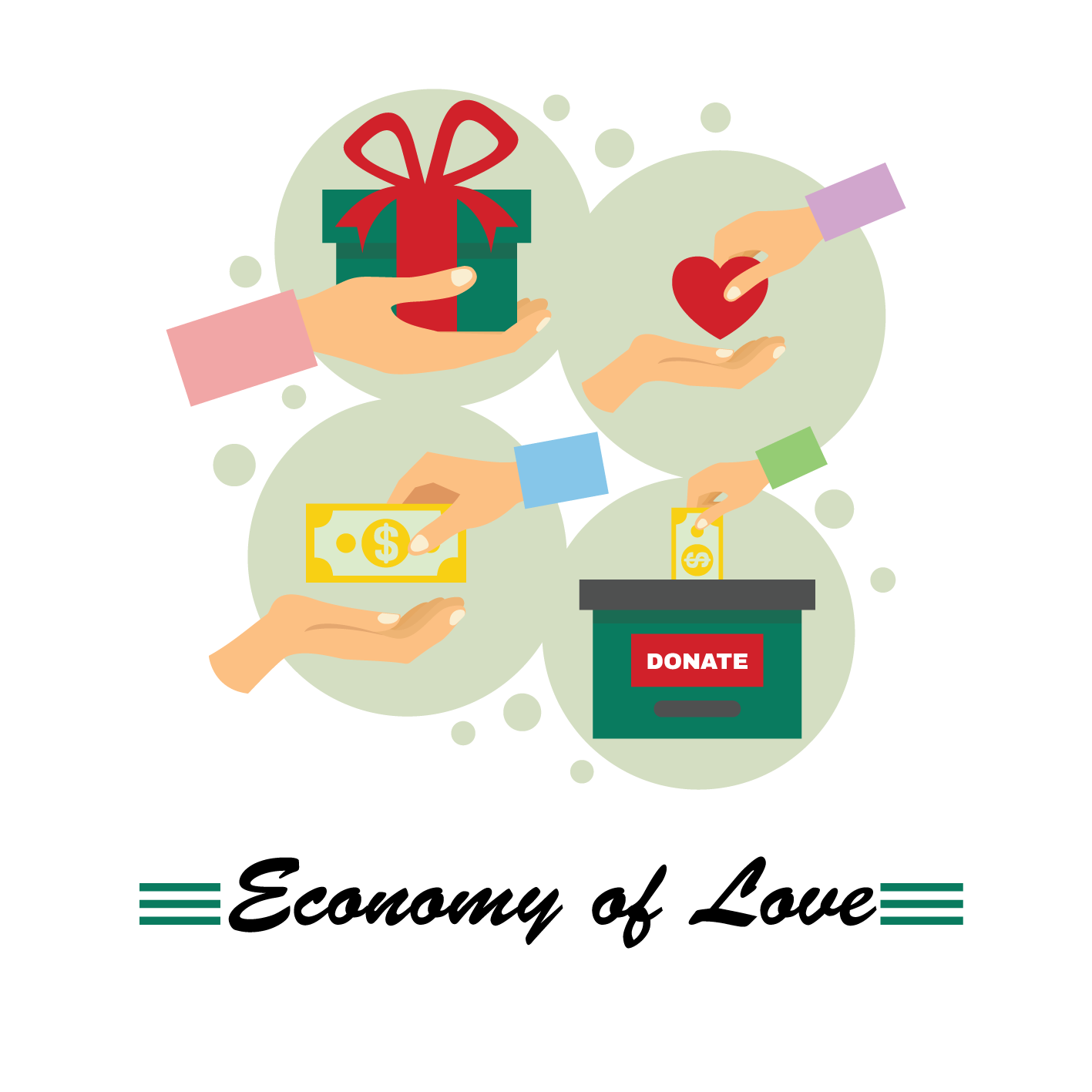
THE ECONOMY OF LOVE
Indigenous African Wisdom for Human Solidarity
Whenever humans work together it seems our biggest struggle is with each other, until they come to understand the truth that opens the barrier between self and the world. In Bafut culture, it is the trust one receives from others in relationships above all, how we encounter each other in the eyes, in the heart and the collective soul that enables us to work and care for each other. According to ancient wisdom it is the sovereignty in life that enables a people to be free spiritually and have communication in the physical state.
The elements that provided water and food was the wealth of the people, people lived for each other by growing food and farming was constant throughout the year. If one needed something, one just went to the neighbor, this was a community based on love. This is true solidarity, the economy of love no one can buy. Just as cats, horses and dogs teach us.
The power of connection of any organism to self and its environment not conditioned by neurotic fear. The absence of this original power and life force in a human being causes a longing and yearning to connect to materialism.
This system of solidarity in the village meant you couldn’t do anything alone. If you wanted to build a house then everyone would come and help. If someone died, you only had to have it announced and everyone would help organize the funeral. The blind and the lame lived like kings, because everybody took care of them. People looked after those in need before themselves and their own families. This was the value and natural gift of the community that was being used to master the difficulties of life in all consciousness. It wasn’t a piece of paper or metal, everything was for the wellbeing of everyone. People did everything with a lot of joy and received a lot of blessing from the community as a result. Love in this way provided a spiritual connection with the divine (ancestors) to understand why we are here and diminished the power of man to want to rule the world.
Colonialists wanted land for tea, coffee and rubber plantations, so the concept of earning money was introduced by the Christian missionaries. When money was first introduced it brought division, it brought class, then the corruption started within the very custodians of the Bafut culture. People couldn’t understand why they were being asked not to grow their own food. Missionaries promised economic development but this was the enslavement of people and the removal of their food sovereignty and total destruction of their culture. The people’s water was bottled and sold to them. Their land was taken away from them. These imposed structures are still how present life is administered and this means the loss of building peaceful communities.
This is the economy that needs to be restored, for people to be themselves again. What are we searching for when we want money? When you are not brought up to put the common good above your personal good, this can be difficult to understand.
Young Africans today grow up deceived to believe they belong to the white man's world and reject their own cultural traditions. Those who still remember wonder, how do you get out of the perfection of nature into this chaos we live in today in the name of something called democracy.
African Way is the opportunity to start revitalizing the vestiges of this cultural heritage within the modern world. Working in youth education, the young people are recreating the spirit of their roots in Ndanifor, a word meaning the luxurious mystery of the future that grows out of the earth. Ndanifor has always existed. It is the ecology of the Bafut people, a colocation of two words, Nifor meaning royalty, which for us means something that gets its life force from the spirit of the earth, all things must be rooted in the earth. Nda is a people’s shrine, it represents the wisdom of the elders, who once guided us on how to live in harmony with mother earth.
The great success of the Bafut Ecovillage, none-the-less, which the city authorities took upon themselves to destroy will be returned home to Bafut through the Spirit of Ndanifor concept and the Economy of Love. The Ndanifor Permaculture Ecovillage went from strength to strength and was soon running Permaculture Design (PDC) and Eco-village Design Education (EDE) courses for people from all over the world.
Making this shift requires an immersive experience. This training is a healing process that turns you into your true self. You come out believing in who you really are, because you cultivate the humility to align with universal forces rather than work against them. This turning on of our collective conscious state cannot be done from individual consciousness, it has to be done within community. We learn to give in order to receive, instead of wanting the community to serve us. This is the economy of love.
What are we searching for when we want money? The people of Bafut transitioned to the eco-village because they craved the warmth and love they felt in the community. For them love means solidarity, and in its purest sense is the healing of the world.
